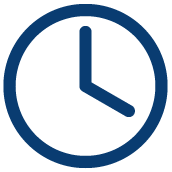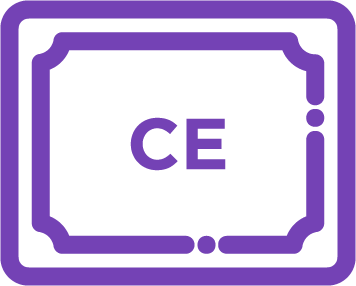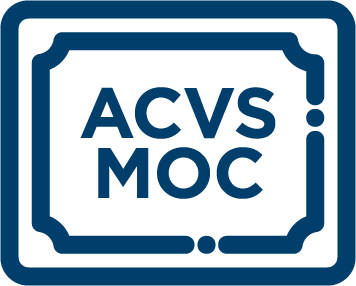
Large Animal Morbidity and Mortality Rounds: Challenging Orthopedic Cases
A variety of challenging large animal orthopedic cases will be presented by a panel of experts. These cases will focus on diagnostic and treatment strategies and decision making. Management strategies for complications encountered with these cases will also be discussed.
Agenda
Carrie Jacobs, DVM, DACVS (Large Animal), will facilitate the following presentations:
- Heidi Reesink, VMD, PhD, DACVS (Large Animal): Hindsight is 20/20: Challenges in Large Animal Orthopedic Surgery & Strategies to Reduce Morbidity
- Bradley Nelson, DVM, MS, PhD, DACVS (Large Animal): Overcoming Adversity: Insights from Challenging Orthopedic Cases
CE Credit
RACE Program #20-1187690 is approved for 2.0 hours of continuing education in jurisdictions which recognize the American Association of Veterinary State Boards’ (AAVSB) Registry of Approved Continuing Education (RACE).
 Webinar Length: 2 hours
Webinar Length: 2 hours  CE Credits: 2 credits
CE Credits: 2 credits  MOC: 2 points
MOC: 2 points
Rates per individual webinar (live and on-demand)
ACVS/ECVS Diplomate/Emeritus Diplomate $85
ACVS/ECVS Resident* $45
Veterinary/Other Professional $100
Student/Intern/Technician $60
Carrie Jacobs, DVM, DACVS (Large Animal) (Moderator)
Assistant Clinical Professor, Equine Orthopedic Surgery
North Carolina State University
Carrie Jacobs obtained her veterinary degree from Michigan State University in 2012. Following graduation, she completed a Large Animal Rotating Internship at the University of Pennsylvania, New Bolton Center in 2013. She then stayed at New Bolton Center to complete a three-year residency and a one-year fellowship in Large Animal Surgery. In September 2017, Dr. Jacobs returned to Michigan State University as a Clinical Assistant Professor in Large Animal Surgery. After 2 years at MSU, Dr. Jacobs had the opportunity to join the surgery group at NC State as a Clinical Assistant Professor with emphasis in orthopedic surgery and sports medicine. She is also currently completing an alternate track residency in sports medicine and rehabilitation.
Bradley Nelson, DVM, MS, PhD, DACVS (Large Animal)
Colorado State University
Dr. Nelson is an assistant professor of equine surgery at the Johnson Family Equine Hospital and Veterinary Teaching Hospital in the College of Veterinary Medicine and Biomedical Sciences at Colorado State University (CSU). Dr. Nelson graduated from the University of Wisconsin-Madison with a D.V.M. in 2009. He then completed an equine internship in surgery and medicine at Washington State University, followed by a residency in equine surgery and lameness at CSU. After surgical residency, Dr. Nelson completed a Ph.D. focused on articular cartilage imaging using computed tomography (CT). He is also a principal investigator in the Orthopaedic Research Center and Preclinical Surgical Research Laboratory, where he uses his equine surgical knowledge for detecting early orthopedic injury. This work benefits horses and contributes to knowledge translatable to humans with orthopedic disease. Dr. Nelson’s clinical and research interests are in minimally invasive orthopedic surgery, advanced diagnostic imaging (CT and MRI), and spine related disorders.
Heidi Reesink, VMD, PhD, DACVS (Large Animal)
Assistant Professor of Large Animal Surgery
Cornell University
Dr. Reesink is an assistant professor of large animal surgery in the Department of Clinical Sciences at Cornell University.
She received her veterinary degree from the University of Pennsylvania in 2007, followed by a large animal surgical and critical care internship at the New Bolton Center from 2007-2008. After completing large animal surgical residency training at Cornell University from 2008-2011, Dr. Reesink achieved board certification by the ACVS in 2012. Dr. Reesink completed her PhD training from 2011-2015 and was appointed as an Assistant Professor of Large Animal Surgery at Cornell University in 2016 and was named the Harry M. Zweig Assistant Professor in Equine Health in 2019.
Dr. Reesink’s primary clinical interests are in veterinary orthopedic surgery, sports medicine and lameness. She has authored several scientific papers and book chapters on topics related to equine orthopedic surgery, fracture and joint disease. Dr. Reesink’s laboratory aims to identify mechanisms underlying the development of orthopedic disease and to pioneer innovative therapies for the treatment of joint injury and arthritis in veterinary and human patients.


